Gagauzia [pronounced Ga-ga-ooz-i-a], a tiny nation within Moldova, was formerly nicknamed “the guard unit of the Byzantine Empire”; this nation preserved its faith under the Ottoman yoke, although they are ethnic Turks. And nowadays it has overwhelmingly voted against integration with the EU in the referendum. Our talk with Archpriest Dimitry Kioroglo from the Autonomous Territorial Unit of Gagauzia (Moldova) is devoted to the origins of such steadfastness and the spiritual roots of the Gagauz people, their history and traditions, and their choice.
A trusting people
—Dear Father Dimitry, what is the role of the Church in Moldova and Gagauzia?
—The functional role of our Moldovan Metropolitanate as a peacekeeping institution has always been very positive. The metropolitanate unites all peoples of our Republic of Moldova. We have a multiethnic country, but the Orthodox faith is predominant.
—Which nationalities and ethnic groups are represented in Moldova?
—There are eleven of them. The largest nationalities are Moldovans, Ukrainians, Gagauz and Bulgarians, Russians (there are even more Russian people than Gagauz or Bulgarians). There are also national minorities, like Gypsies, Poles…
—Gagauz are among the very few peoples who, having once embraced Orthodox Christianity, have been able to preserve the faith for many centuries. Why do you think this is so? What were the effects of such faithfulness to Orthodoxy on this nation?
—Because the Gagauz people adopted this living Christian faith as fully as, say, Prince Vladimir of Kiev. After Baptism he changed radically—the Baptism changed him! And such adoption of the faith guaranteed preservation of this faith for a thousand years.
—And even being under the yoke of Ottoman Turks by no means crushed this faith?
—Yes. The Turkic-speaking Christians—the Gagauz people—were under especially strong pressure from Ottoman Turks, because they spoke Turkic—the language so familiar to them. This is a Balkan dialect of Turkish.
—How did the faithfulness of this nation to Christ and Orthodoxy influence its mentality? What kind of people are they?
—Gagauz people staunchly defended their faith; we do not know any cases of Gagauz people converting to Islam. This is finely demonstrated in the example of the 1922 catastrophe, when most of Gagauz people, Greeks, Bulgarians were forcibly resettled from Turkey to Bulgaria and Greece, while Turks moved from Bosnia and Greece by decision of the Lausanne and Genoa Conferences. And Turks, first of all, resettled Gagauz people, as they had proven themselves to be earnest Orthodox Christians.
—Now I would like to talk about the peacekeeping role of the Church. I have heard that Moldova is a sort of a “blank spot” on the spiritual and educational map of Europe. Do you agree with that? Are there such serious problems with teaching religious subjects in schools?
—Well, maybe we have no fixed hours of teaching religion at schools, as in Greece and Romania; but the basics of Orthodox faith are taught at many public schools by priests or teachers prepared by them. There are no fewer than 700 such schools.
—Fr. Dimitry, according to the polls, the integration of Moldova with the EU was not met positively by the Gagauz people. (In the referendum held on February 2, 2014, in the Autonomous Territorial Unit of Gagauzia 98.4% of voters chose closer ties with the Eurasian Customs Union and Russia, while 97.2% were against a closer integration with the EU). Why?
—Because Gagauz people have always lived on their own land, worked, tilled the soil, communicated in their socium and interethnically: for instance, neighbors used to come to see each other on Church feasts and practiced other forms of such communication. So they are closer to their eastern neighbors, such as Ukrainians and Russians. The Russian Principality extended to the Danube from the earliest times. Prince Svyatopolk (Svyatoslav) led a campaign against Dorostol, what is now Silistra in Bulgaria. It means they were always connected…
Today, when the Gagauz people are being recruited and persistently invited to Europe (“Come to us!”), the population has decided to stick to those traditions in which it has lived for many hundreds of years. I believe this conviction should be respected. It can be said that the referendum which was held here in Gagauzia is like a diagnosis. As we know, when we go to the doctor and are given a diagnosis, we trust our doctor. And it is the same with this referendum: the nation that has expressed its opinion should be trusted, and not the political groups which are persistently inviting the people somewhere in the guise of democracy.
—You have said a very important word—“trust”. Do Gagauz people trust their Church?
—I do not know any instances when they did not trust their faith that is in their hearts, which was confessed by their ancestors. And they pass on this faith to their children. This confidence in the Church will last forever, regardless of any circumstances.
—It appears that you have unique peacekeeping potential. Once a public figure said that Gagauzia is “the historical guard unit of the Byzantine Empire” owing to its devotion to Orthodoxy. How can this Orthodox potential of yours be useful to other nations and to entire world? What can we learn from Gagauz people?
—Gagauz people are unique because they have preserved the faith, though they are Turkic-speaking. And they are peace-loving! And I would say they are trusting. They easily find a common language with others, they are hospitable, and this helped this small nation to survive throughout many centuries. They went down in history, and they are still here.
Where is Gagauzia?
—Let us now talk about the terms. What is the origin of the word “Gagauzia?” Not everybody knows where Gagauzia is located.
—The Autonomous Unit of Gagauzia is in the southern part of Moldova. Gagauz people also live in the south of the Ukraine and the adjacent area of the Budjak (Bucak) Steppe. The word “Budjak” means “a corner” in Tatar.
So Gagauzia is situated in the lower part of former Bessarabia in what is now the Republic of Moldova.
—It means that Gagauz lived there back in 1812 when Bessarabia was transferred to Russia?
—Yes, they have always lived there. But at one time Mongol and Tatar tribes came to live there, for example—the Nogai Horde. And when they left, the local Gagauz were joined by Gagauz from Turkey, from the Northern Black Sea region, Bulgaria.
—You said the recent referendum was a kind of act of faith in people. But its results do not mean that Gagauz hate Europe, right? What is their attitude towards Europe?
—Gagauz people are not enemies of Europe. They wish to be integrated and to join the Eurasian Customs Union. For 200 years they lived in the Russian Empire, then they lived in USSR—and that was a natural process, a sort of “diagnosis” of the nation—strong indicator of their spiritual aspirations.
—What were the results in percentage terms?
—Ninety percent. Isn’t that an indication? You should believe your own people; so the referendum is a starting point, a message to the leaders of Gagauzia.
The common liturgical language
—Fr. Dimitry, Slavonic was the state language for Moldavian principalities. What were its effects on the Gagauz mentality and cultural code?
—The tradition of the Slavonic language on our territory is many hundreds of years old. And you should not think that the situation was different in Romania or Moldova. As is generally known, in the Middle Ages our Moldavian tsars and princes wrote in Cyrillic and knew Slavonic. The Liturgies were based on Slavonic services. And, of course, there was also a local Moldavian component. Such was the power of influence of the liturgical language based on Cyrillic and Slavonic texts!
—You have mentioned that the Gagauz are a very peace-loving nation. What other qualities are characteristic of these people?
—Gagauz do not put themselves above other nations, they do not say, “We are the best.” Not all nations are the same, and this is even reflected in their folklore, humorous proverbs. For example, their is a proverb in [the Russian city of] Ryazan: “The Ryazan mushrooms have eyes. They look at you while you are eating them.” Funny? And there is no suggestion that we are somehow better than our neighbors.
But, unfortunately, this quality of Gagauz people—trustfulness, even gullibility—is being destroyed today. These attributes must be returned and revived. Mutual credit must be present in the modern multipolar society, in the interethnic and interfaith relations. The “all against all’ tendency should not prevail, though it does take place now. The traditional inherent qualities of peoples should be preserved—they cherished them, they created them through insight, the unity of faith, through communication, meetings at fairs and church festivals. Thus the mutual confidence, trust between peoples who now live on the territory of Gagauzia in Moldova was achieved.
—But why is it being destroyed? Why is the mutual confidence weakening?
—Because today various political and other figures are appearing and they are creating specific situations, making specific comments that are destroying faith. Credence is being destroyed under the influence of different groups that are pursuing their own goals. And under the guise of democracy, new, alien ideas are infiltrating the society of Gagauzia.
—And what is the total population of Gagauzia?
—Now 150-160 thousand people reside in the Autonomous Unit of Gagauzia. Formerly we had up to 200 thousand people.
—There are three large cities.
—Three district centers.
—Fr. Dimitry, by tradition we want to ask you to address our viewers and readers of website with words of edification.
—What can such a tiny Orthodox nation as Gagauzia share with you? It can call to steadfastness, to faithfulness. Our believers can set a good example for our brothers—Orthodox Christians of other nations. They have preserved the Orthodox faith throughout the centuries, have passed it on to their children, and will pass it on to future generations, no matter what circumstances they may be faced with. In the future they will always be closer to those who will assist in preserving this faith. If they will have to choose between the faith and comfort, then they will choose, above all, what their soul has acquired: our holy Orthodox faith, which God granted us and commanded us to keep.

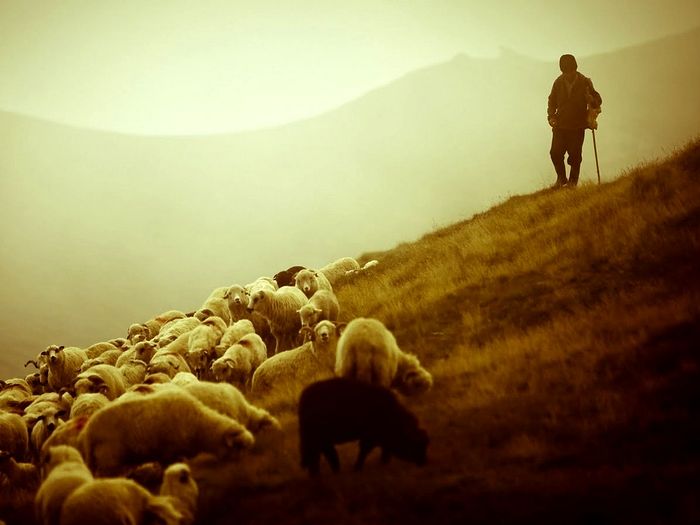
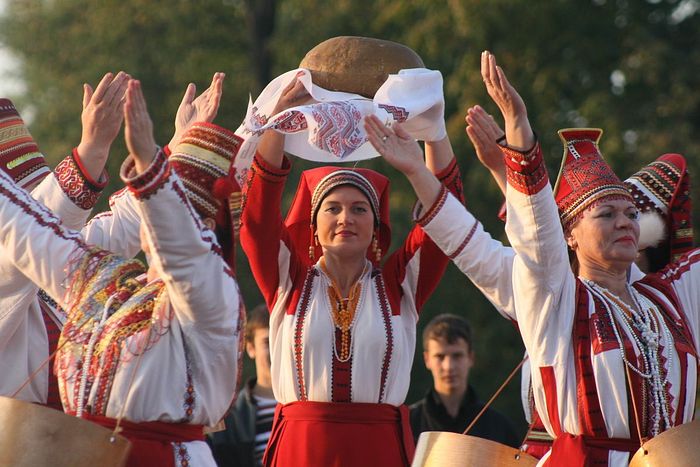
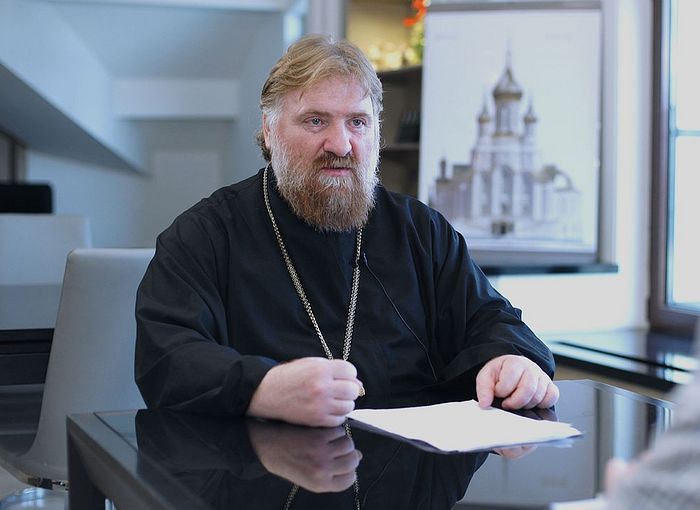

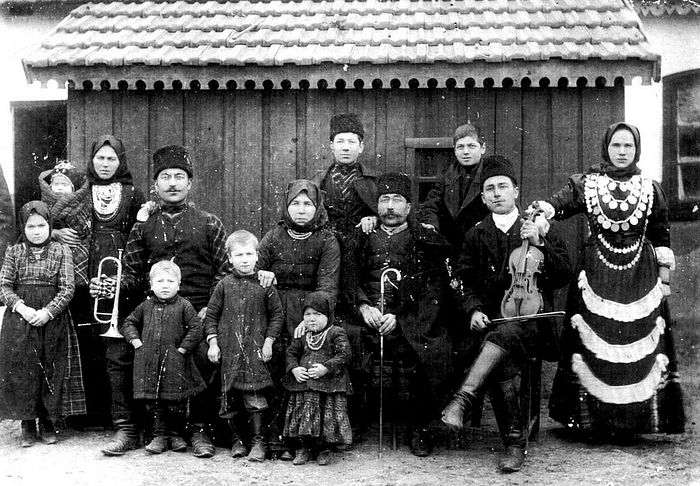
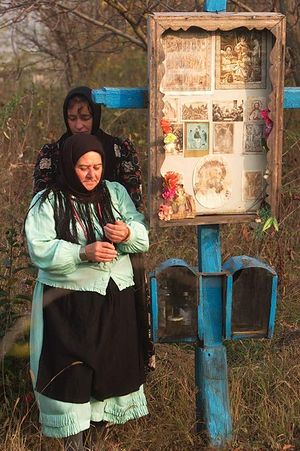
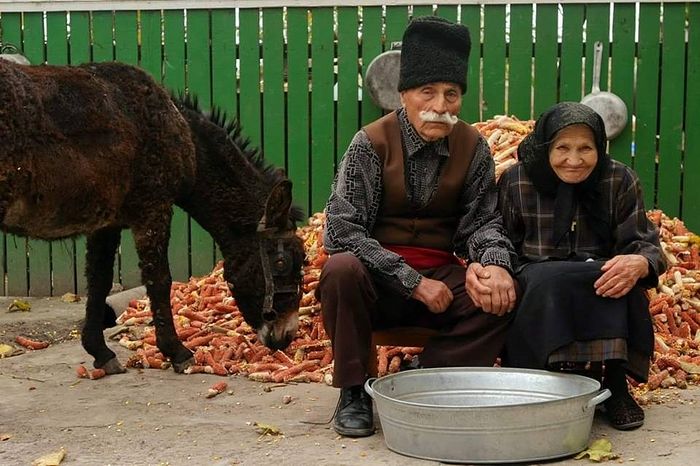
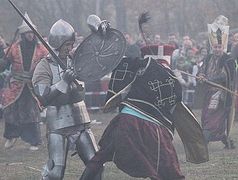
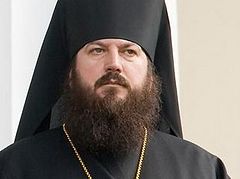
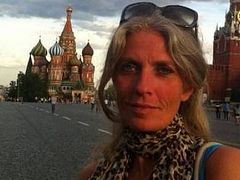
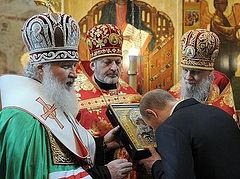
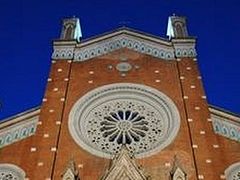
Gagauz people only arrived in the Southern part of Moldova during the Russo-Ottoman wars and Russia offered them land. Remember that the Russian's goal was to destroy the identity of all locals living in Moldova(aka Romanians) hence Russia started offering privileges to Gagauz, Russians, Ukrainians, Germans and even Swiss people. This is the truth and there is only one.
I do respect the Gagauz customs, however they should first feel Moldovans, THEN Gagauz. However, their region only creates disputes and does not let Moldova progress further (along with Transnistria).
The moldovans are romanians.
The romanians are orthodox, in full communion with all the Eastern Orthodox Churches, including the Russian one, so leave the politics alone, away from the church and speak the TRUTH.